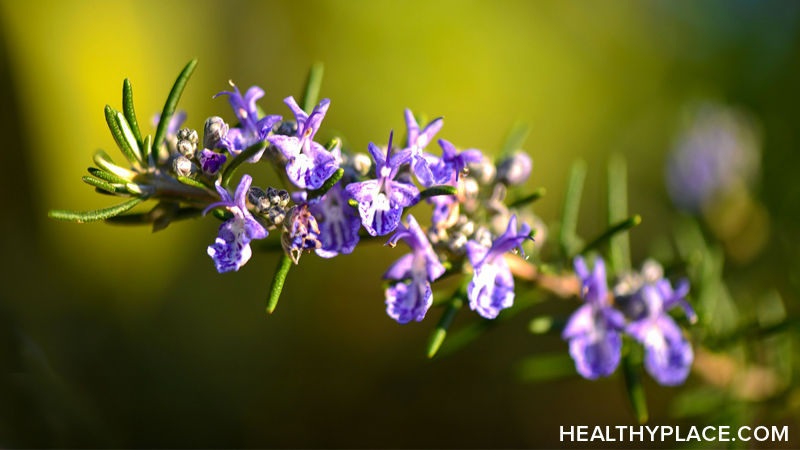
Rosemary is an herbal remedy used to improve memory, relieve muscle pain and spasm, relieve menstrual cramps, and stimulate hair growth. Learn about the usage, dosage, side-effects of Rosemary.
Botanical Name:Rosmarinus officinalis
Overview
Rosemary (Rosmarinus officinalis) is widely used as a culinary herb, especially in Mediterranean dishes, and is also used as a fragrant additive in soaps and other cosmetics. Traditionally, rosemary has been used by herbalists to improve memory, relieve muscle pain and spasm, stimulate hair growth, and support the circulatory and nervous systems. It is also believed to affect the menstrual cycle, act as an abortifacient (inducing miscarriage), relieve menstrual cramps, increase urine flow, and reduce kidney pain (for example, from kidney stones). Recently, rosemary has been the object of laboratory and animal studies investigating its potential in the prevention of cancer and its antibacterial properties.
Plant Description
Native to the Mediterranean area, rosemary is now cultivated widely in other parts of the world, although it thrives in a warm and relatively dry climate. The plant takes its name from rosmarinus, a Latin term meaning "sea dew." It is an erect evergreen shrub that can grow to a height of six and a half feet. The woody rootstock bears rigid branches with fissured bark. The long, linear, needle-like leaves are dark green above and white beneath. Both the fresh and dried leaves are pungent. The small flowers are pale blue. The leaves and parts of the flowers contain volatile oil.
Parts Used
The leaves and twigs of the rosemary plant are used for culinary and medicinal purposes.
Medicinal Uses and Indications of Rosemary
Food Preservation
Most evidence for rosemary's medicinal uses comes from clinical experience rather than from scientific studies. However, recent laboratory studies have shown that rosemary slows the growth of a number of bacteria such as E. coli and S. aureus that are involved in food spoilage, and may actually perform better than some commercially used food preservatives.
Alopecia
As stated above, one traditional use of rosemary has been to try to stimulate hair growth. In one study of 86 people with alopecia areata (a disease of unknown cause characterized by significant hair loss, generally in patches), those who massaged their scalps with rosemary and other essential oils (including lavender, thyme, and cedarwood) every day for 7 months experienced significant hair re-growth compared to those who massaged their scalps without the essential oils. It is not entirely clear from this study whether rosemary (or a combination of rosemary and the other essential oils) was responsible for the beneficial effects.
Cancer
Both laboratory and animal studies suggest that rosemary's antioxidant properties may have activity against colon, breast, stomach, lung, and skin cancer cells. Much more research in this area, including trials involving people, must be conducted before conclusions can be drawn about the value of rosemary for cancer.
Available Forms
- Dried whole herb
- Dried, powdered extract (in capsules)
- Preparations derived from fresh or dried leaves, such as tinctures, infusions, liquid extract, and rosemary wine
- Volatile oil (to be used externally, not to be ingested)
How to Take It
Pediatric
There are no known scientific reports on the medicinal use of rosemary in children. Therefore, it is not currently recommended for this age group.
Adult
Listed below are the recommended adult doses for rosemary. (Total daily intake should not exceed 4 to 6 grams of the dried herb.):
- Tea: 3 cups daily. Prepare using the infusion method of pouring boiling water over the herb and then steeping for 3 to 5 minutes. Use 6 g powdered herb to 2 cups water. Divide into three small cups and drink over the course of the day.
- Tincture (1:5): 2 to 4 mL three times per day
- Fluid extract (1:1 in 45% alcohol): 1 to 2 mL three times per day
- Rosemary wine: add 20 g herb to 1 liter of wine and allow to stand for five days, shaking occasionally
Externally, rosemary may be used as follows:
- Essential oil (6 to 10%): 2 drops semisolid or liquid in 1 tablespoon base oil
- Decoction (for bath): Place 50 g herb in 1 liter water, boil, then let stand for 30 minutes. Add to bath water.
Precautions
The use of herbs is a time-honored approach to strengthening the body and treating disease. Herbs, however, contain active substances that can trigger side effects and interact with other herbs, supplements, or medications. For these reasons, herbs should be taken with care, under the supervision of a practitioner knowledgeable in the field of botanical medicine.
Rosemary is generally considered safe when taken in recommended doses. However, there have been occasional reports of allergic reactions. Large quantities of rosemary leaves, because of their volatile oil content, can cause serious side effects, including vomiting, spasms, coma and, in some cases, pulmonary edema (fluid in the lungs).
Those who are pregnant or breastfeeding should not use rosemary in quantities larger than those normally used in cooking. An overdose of rosemary may induce a miscarriage or cause damage to the fetus.
Rosemary oil, taken orally, can trigger convulsions and should not be used internally. Topical preparations containing rosemary oil are potentially harmful to hypersensitive people who may be allergic to camphor.
Possible Interactions
Doxorubicin
In a laboratory study, rosemary extract increased the effectiveness of doxorubicin in treating human breast cancer cells. Human studies will be necessary to determine whether this is true in people. Meanwhile, those taking doxorubicin should consult with a healthcare practitioner before taking rosemary.
Supporting Research
al-Sereiti MR, Abu-Amer KM, Sen P. Pharmacology of rosemary (Rosmarinus officinalis Linn.) and its therapeutic potentials. Indian J Exp Biol. 1999;37(2):124-130.
Aruoma OI, Spencer JP, Rossi R, et al. An evaluation of the antioxidant and antiviral action of extracts of rosemary and Provencal herbs. Food Chem Toxicol. 1996;34(5):449-456.
Blumenthal M, Goldberg A, Brinckmann J. Herbal Medicine: Expanded Commission E Monographs. Newton, MA: Integrative Medicine Communications; 2000:326-329.
Brinker F. Herb Contraindications and Drug Interactions. Sandy, Ore: Eclectic Medical Publications;1998:117.
Chan MM, Ho CT, Huang HI. Effects of three dietary phytochemicals from tea, rosemary and turmeric on inflammation-induced nitrite production. Cancer Lett. 1995;96(1):23-29.
Chao SC, Young DG, Oberg J. Effect of a diffused essential oil blend on bacterial bioaerosols. Journal of Essential Oil Research. 1998;10:517-523.
Debersac P, Heydel JM, Amiot MJ, et al. Induction of cytochrome P450 and/or detoxication enzymes by various extracts of rosemary: description of specific patterns. Food Chem Toxicol. 2001;39(9):907-918.
Elgayyar M, Draughon FA, Golden DA, Mount JR. Antimicrobial activity of essential oils from plants against selected pathogenic and saprophytic microorganisms. J Food Prot. 2001;64(7):1019-24.
Foster S, Tyler V. The Honest Herbal: A Sensible Guide to the Use of Herbs and Related Remedies. 4th ed. New York: The Haworth Herbal Press; 1999:321-322.
Gruenwald J, Brendler T, Jaenicke C. PDR for Herbal Medicines. 2nd ed. Montvale, NJ: Medical Economics Company; 2000:645-646.
Hay IC, Jamieson M, Ormerod AD. Randomized trial of aromatherapy. Successful treatment for alopecia areata. Arch Dermatol. 1998;134(11):1349-1352.
Ho CT, Wang M, Wei GJ, Huang TC, Huang MT. Chemistry and antioxidative factors in rosemary and sage. Biofactors, 2000;13(1-4):161-166.
Huang MT, Ho CT, Wang ZY, et al. Inhibition of skin tumorigenesis by rosemary and its constituents carnosol and ursolic acid. Cancer Res. 1994;54(ISS 3):701-708.
Lemonica IP, Damasceno DC, di-Stasi LC. Study of the embryotoxic effects of an extract of rosemary (Rosmarinus officinalis L.) Braz Med Biol Res. 1996;19(2):223-227.
Martinez-Tome M, Jimenez AM, Ruggieri S, Frega N, Strabbioli R, Murcia MA. Antioxidant properties of Mediterranean spices compared with common food additives. J Food Prot. 2001;64(9):1412-1419.
Newall C, Anderson L, Phillipson J. Herbal Medicines: A Guide for Health-care Professionals. London, England: Pharmaceutical Press; 1996: 229-230.
Offord EA, Macé K, Ruffieux C, Malne A, Pfeifer AM. Rosemary components inhibit benzo[a]pyrene-induced genotoxicity in human bronchial cells. Carcinogenesis. 1995;16(ISS 9):2057-2062.
Plouzek CA, Ciolino HP, Clarke R, Yeh GC. Inhibition of P-glycoprotein activity and reversal of multidrug resistance in vitro by rosemary extract. Eur J Cancer. 1999;35(10):1541-1545.
Schulz V, Hansel R, Tyler V. Rational Phytotherapy: A Physicians' Guide to Herbal Medicine. 3rd ed. Berlin, Germany: Springer; 1998:105.
Singletary KW, Rokusek JT. Tissue-specific enhancement of xenobiotic detoxification enzymes inmice by dietary rosemary extract. Plant Foods Hum Nutr. 1997;50(1):47-53.
Slamenova D, Kuboskova K, Horvathova E, Robichova S. Rosemary-stimulated reduction of DNA strand breaks and FPG-sensitive sites in mammalian cells treated with H2O2 or visible light-excited Methylene Blue. Cancer Lett. 2002;177(2):145-153.
Wargovich MJ, Woods C, Hollis DM, Zander ME. Herbals, cancer prevention and health. J Nutr. 2001;131(11 Suppl):3034S-3036S.
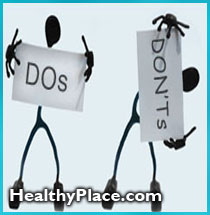 DO: Be Supportive. Talk about the Obsessive Compulsive Disorder. Listen to the loved one. Try to be understanding during stressful time's and praise any improvements made during treatment. Try and improve the sufferers self-esteem, confidence, and boost their self-image. Encourage the individual by letting them know that they are NOT alone and that treatment for OCD is available. Work with the Professionals and the individual in setting workable guidelines to follow at home. Encourage the OCDer that there are OCD medications and behavior therapy programs for Obsessive Compulsive Disorder to help them and assure them them their symptoms can be reduced significantly. Suggest that they join a Support Group with you or by themselves.
DO: Be Supportive. Talk about the Obsessive Compulsive Disorder. Listen to the loved one. Try to be understanding during stressful time's and praise any improvements made during treatment. Try and improve the sufferers self-esteem, confidence, and boost their self-image. Encourage the individual by letting them know that they are NOT alone and that treatment for OCD is available. Work with the Professionals and the individual in setting workable guidelines to follow at home. Encourage the OCDer that there are OCD medications and behavior therapy programs for Obsessive Compulsive Disorder to help them and assure them them their symptoms can be reduced significantly. Suggest that they join a Support Group with you or by themselves.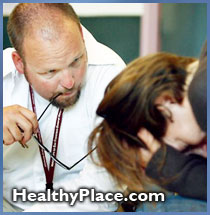 I feel very strongly that anyone who has ever experienced psychiatric symptoms needs to develop for themselves, while they are well, a crisis plan such as the one that follows. This plan allows those of us who experience psychiatric symptoms to maintain some degree of control over our lives , even when it feels like everything is out of control.
I feel very strongly that anyone who has ever experienced psychiatric symptoms needs to develop for themselves, while they are well, a crisis plan such as the one that follows. This plan allows those of us who experience psychiatric symptoms to maintain some degree of control over our lives , even when it feels like everything is out of control.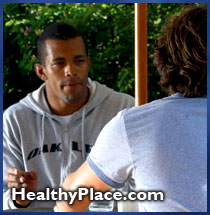
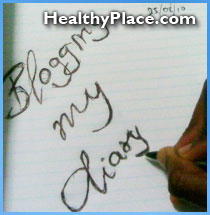 What do I say about this month, I wonder? What words could possibly sum it all up? - Heartbroken, hurt, excited, proud, angered or just Stunned!!!
What do I say about this month, I wonder? What words could possibly sum it all up? - Heartbroken, hurt, excited, proud, angered or just Stunned!!!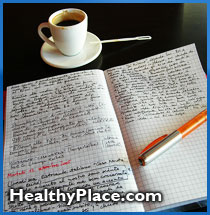 Here come's the rain again!" Today is a total wash out! It's been raining all day. So much for Summer!
Here come's the rain again!" Today is a total wash out! It's been raining all day. So much for Summer!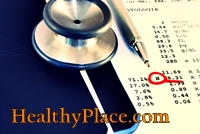 We get a number of people contacting us about the issue of taking supplies of ADHD medication out of the UK when they go on holiday. We also get people contacting us from outside the UK who are coming to the UK on holiday or for longer periods of time.
We get a number of people contacting us about the issue of taking supplies of ADHD medication out of the UK when they go on holiday. We also get people contacting us from outside the UK who are coming to the UK on holiday or for longer periods of time.